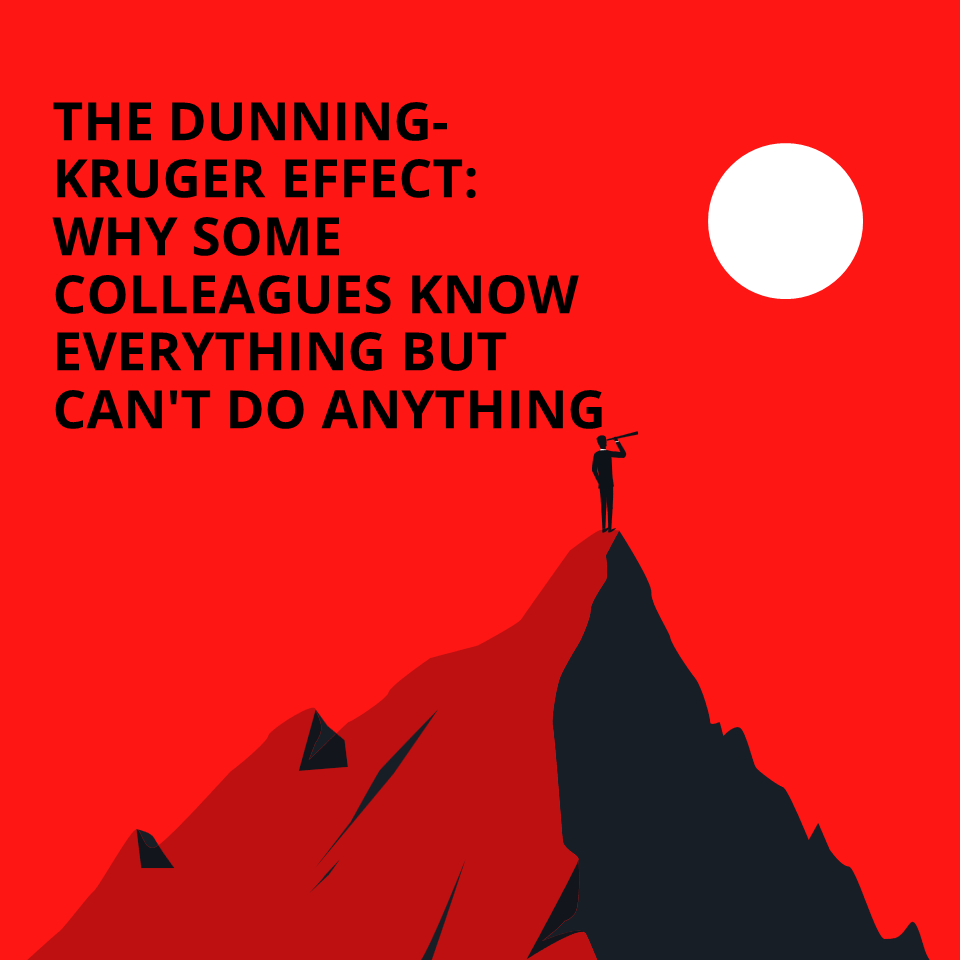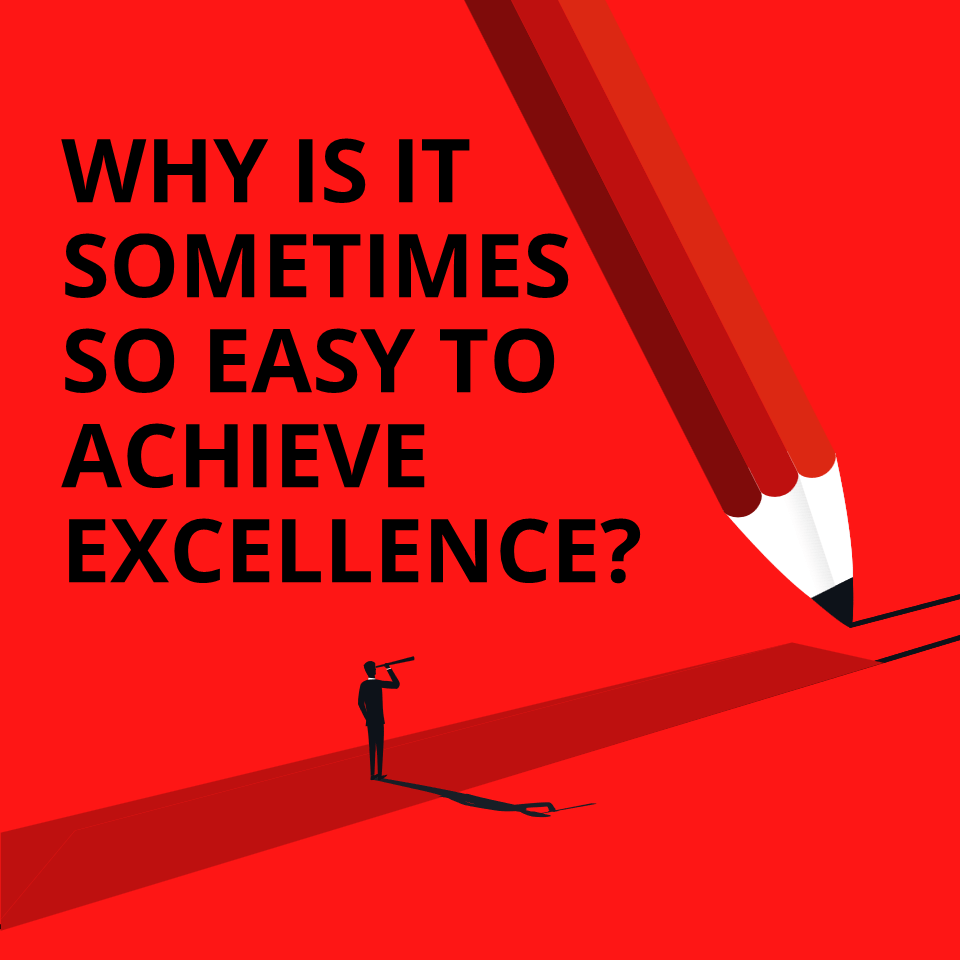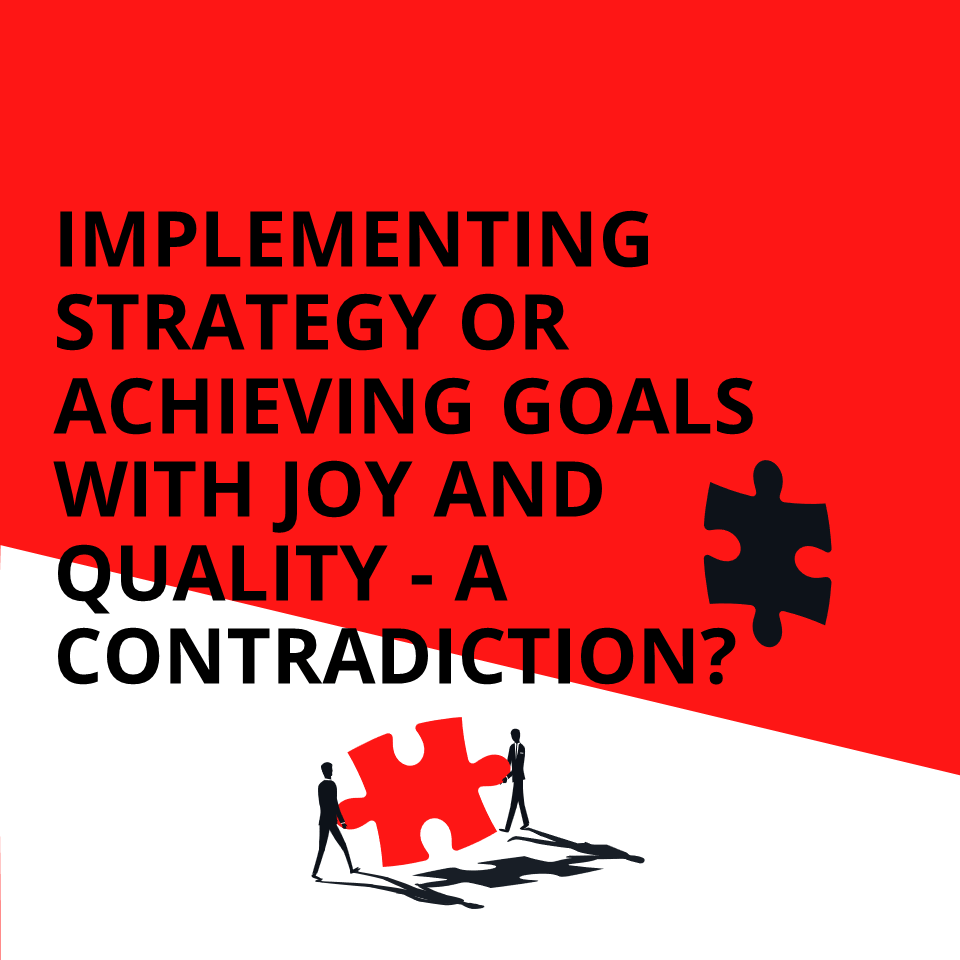Everyone has experienced a colleague who thinks he or she is the greatest, but really has no idea. This phenomenon even has a name: the Dunning-Kruger effect (David Dunning und Justin Kruger, 1999). It describes the phenomenon that people with low expertise in certain areas are often convinced they are experts, while people with actual expertise are often insecure and undervalue their abilities.

The Dunning-Kruger effect is a widespread phenomenon in the working world that poses a challenge for both employees and managers. It can lead to poor decisions, inefficient work processes and even conflict. In order to understand and deal effectively with this phenomenon, it is important to know the mechanisms behind the Dunning-Kruger effect and to develop appropriate solutions.
Lack of expertise or experience
One of the main causes of the Dunning-Kruger effect is a lack of expertise or experience. When someone has limited knowledge in a particular area, it can be difficult to recognize one’s own lack of knowledge. This can lead to overconfidence, as the person does not have the necessary expertise to recognize their own gaps.
Limited ability for self-assessment
Another factor is the limited capacity for self-assessment. People often tend to assess their abilities and performance unrealistically. If they do not have sufficient expertise to evaluate their performance objectively, they can easily overestimate how good they really are.
So what is the best way to deal with colleagues who are affected by the Dunning-Kruger effect?
Here are some possible solutions:
Critically questioning arguments: If a colleague claims to be an expert in a certain field, one should critically question his or her arguments and, if necessary, conduct a fact check. In this way, one can avoid misjudgments and wrong decisions.
Example: An employee in a team claims to be an expert in project management and proposes a completely inefficient project plan. Instead of simply accepting this, the team members should critically examine his arguments and point out possible weaknesses and alternative solutions.
Rely on objective evaluation criteria:
Instead of relying on opinions and assessments, objective evaluation criteria such as measurement data, statistics and results should be used. These provide a clear overview of the state of affairs and can help with decisions.
Example: In product development, clear criteria such as customer satisfaction, sales increase, and quality assessments can serve as the basis for evaluating ideas and solution approaches.
Involvement of colleagues with actual expertise:
It is helpful to question which colleagues with actual expertise are to be involved in the respective decision-making processes. In this way, informed decisions can be made and misjudgments avoided.
Example: When planning a complex project, the team should not only rely on the opinion of the self-proclaimed project expert, but also seek input from colleagues who actually have experience in project management.
Open communication and feedback:
It is important to establish an open communication and feedback culture in the company. In this way, employees can talk openly about their skills and assessments and receive constructive feedback. Admitting mistakes should also be accepted in such a culture. It also reduces “blind spots” over time and increases self-reflection skills.
Example: Space for feedback and discussion should be created in regular team meetings so that all employees feel safe to voice their ideas and concerns.
Tact and empathy
Dealing with colleagues affected by the Dunning-Kruger effect therefore requires a certain amount of tact and empathy. It is important not to expose or devalue these colleagues, as this can lead to tension. Instead, you should try to point out possible misconceptions to them in a respectful way and help them expand their knowledge and skills.
Example: Instead of confronting colleagues directly and saying they don’t have a clue, one could be empathetic toward them and encourage them to discover new perspectives. You could acknowledge that even experts can always learn and that it’s okay not to know everything.
And if you’re wondering now if you’ve been affected by the Dunning-Kruger effect yourself – don’t worry, we’ve all been there. It’s important to always reflect critically and have an open exchange with people. Taking a self-critical look at yourself from time to time and realistically assessing your own expertise can help you overcome the Dunning-Kruger effect and continuously develop personally and professionally.
Open communication and feedback
To create an environment where the Dunning-Kruger effect is minimized, it is critical to foster a culture of openness and learning. Companies can support this through training, workshops and mentoring programs that help employees improve their skills and expand their knowledge.
Overall, the Dunning-Kruger effect is a phenomenon relevant to performance that occurs in many work environments. By understanding the underlying mechanisms and applying appropriate solution approaches, companies can help their employees assess their capabilities more realistically, thereby contributing to more productive and efficient collaboration. Because at the end of the day, the entire company benefits when the strengths of each individual are optimally utilized.
Let us know what you think about this topic and leave us a short comment – we and the other readers are happy to get into the exchange!
And if this post is valuable to you, then simply share it via the selection below.


